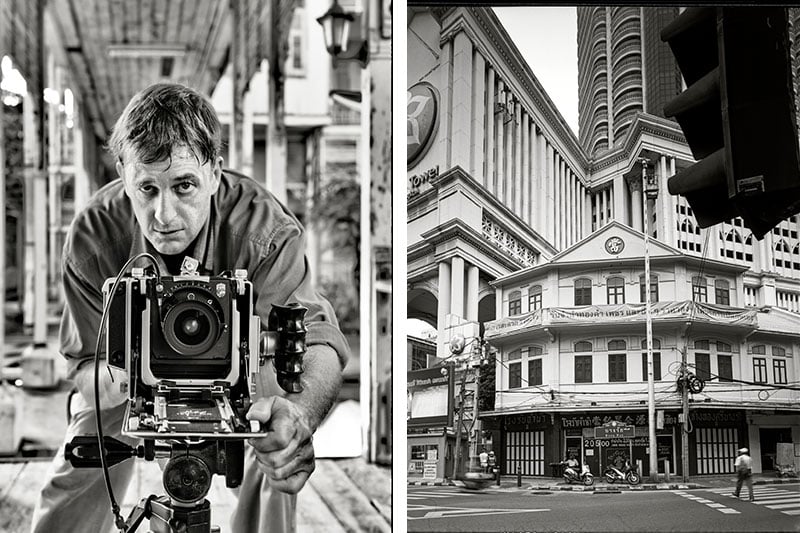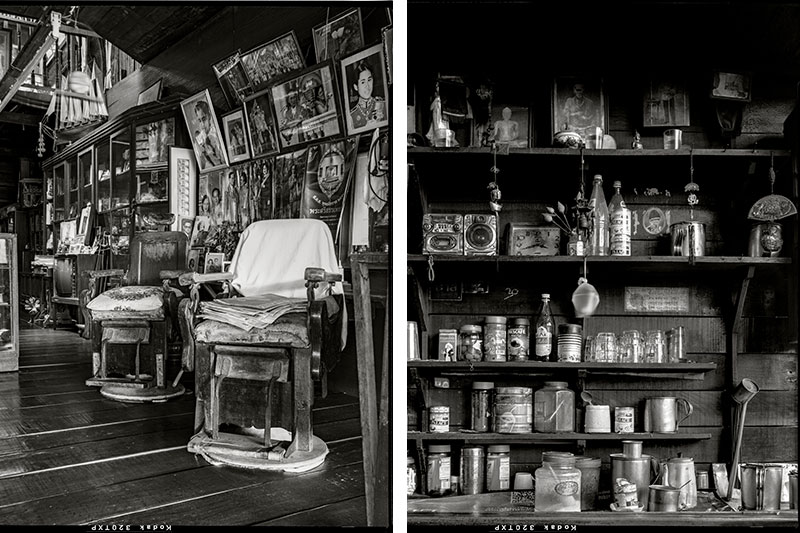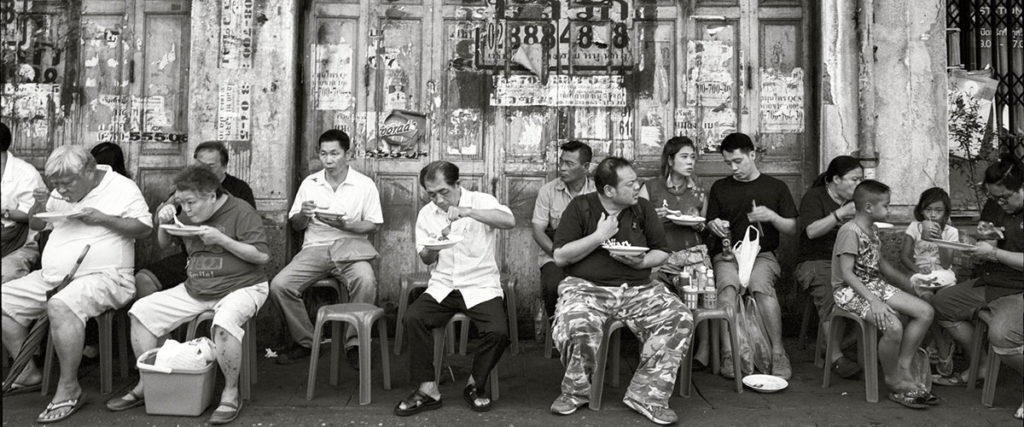Photographer Ben Davies discusses gentrification and Bangkok’s disappearing culture, documented strikingly in Vanishing Bangkok.
Born and raised in England, Ben Davies has lived in Bangkok for over 20 years. Upon graduating with a master’s degree in English Literature from the University of Edinburgh in 1983, he spent a year travelling around Southeast Asia and, after being captivated by the region and its varied cultures, he made the pivotal decision to settle down and pursue a career in freelance writing and photography. Since then, Ben has travelled all over Asia whilst working on political and business reporting, illegal wildlife trade investigations and documenting the various cultures in Southeast Asia that are slowly being lost to gentrification. We sat down with Ben to discuss his latest project, Vanishing Bangkok, which highlights the hidden charms of historical Bangkok.

What is Vanishing Bangkok and what do you hope to accomplish?
Vanishing Bangkok is both a book and an ongoing photo exhibition, but on a broader level, it’s very much a call to action. It’s my attempt to open people’s eyes to what’s happening to the city. All around us, gorgeous neighbourhoods and historic buildings are being torn down to make way for fancy shopping malls and high rises, resulting in the city losing both its character and identity.
I wanted to raise awareness about what is happening to the old city and make people look at urban development in a different way. I want them to appreciate the beauty in buildings that they’d previously viewed as rather old and decrepit. I want them to realise that if you tear down all the old communities, all the old neighbourhoods, you deprive the city of the things that make it what it is. It’s not just about old buildings – it’s very much about the old way of life; it’s about people’s lives. I think that it’s very easy to get carried away with new developments and forget just how integral these old parts of the city are to people’s lives. It would be a terrible loss if we lost that history.
What was the most memorable experience you had while shooting this project?
Every experience was memorable. I normally would get up at 4:30 am and be out on the streets before dawn, setting up my tripod before the traffic came along. When you get up at that time in the morning in a big busy city like Bangkok, you’ll suddenly find that you’re walking out into this rather magical world because there aren’t many people out there. I remember walking along the canals at dawn, and there was a very special aura about the city – you really did get the sense of the old communities, the old village life. And then suddenly, at around 7:30 AM, the traffic jams would start again and you’re immediately transported back into the 21st century – that’s one special sight.
In terms of other memorable things, there was this one incident back in early 2018. I’d been going back to an old community in the Mahakan Fort area, which had been there for some generations. One day, the government came to close the community down and turn the area into a public park. I was there when the authorities came and tore down the last of the houses. People that I’d interviewed and talked to were crying. It was heart-wrenching because this was their life and their history being torn down.

What have been your biggest takeaways from this project?
All cities have to change; all cities have to evolve. That’s a very natural thing and I am all for improving infrastructure and improving the quality of life of people. But, what I think is important is that, at the same time, you should preserve some of the old community, some of the old parts of the city, because that’s what gives it character and identity. I think it’s very much a two-tier approach: Bangkok will modernise and has to modernise, but I don’t think that it should all be about profit before culture. People have to learn to value this heritage before it’s all gone – and it’s been going very fast.
Working on Vanishing Bangkok gave me incredible hope because when I first started, there was just this sense that this city was changing so quickly, that people have become so much more materialistic and less spiritual. And I think what I quickly realised was that many people do care, that there is a younger generation that values their history beyond just the temples and the palaces that Thailand is traditionally known for. I think that was a fairly uplifting finding.
What are your future plans?
I’ve got a major photo exhibition at River City Gallery that will go on for another couple of months, but it’s temporarily closed due to the lockdown. It’s actually been quite a welcome break; I’ve got thousands of negatives that I’ve had the chance to sort through and I think it also gives a little bit of time to reflect on why projects like this are so important.
At the same time, after 5 years of working on this project, I’m slowing down a little bit and looking at other potential projects. I did a book on the illegal wildlife trade some years ago and I’m very interested in the environment in a culture outside of Thailand, so there are a few things that I’m looking at.
Ben Davies is the author of Vanishing Bangkok: The Changing Face of the City. His exhibition will run from 13 March to 28 June 2020 at RCB Photographers’ Gallery.
Related Articles
Through the Lens: Capturing Nostalgic Realism Through Polaroids





